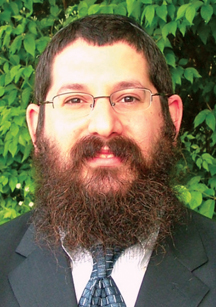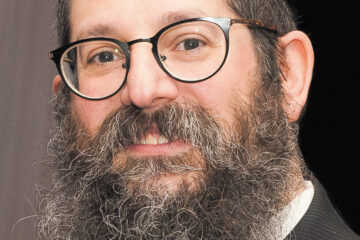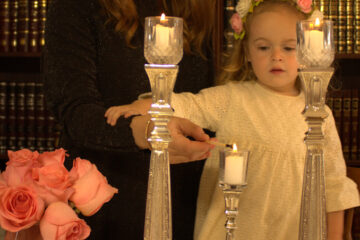Living with the times: the hakhel year

By Rabbi Nochum Mangel
Director, Chabad of Greater Dayton
As many in the media have noted, the bruising fight over the Iran deal revealed a deep split among American Jews.
For many decades, the overwhelming majority of American Jews were united in their support of Israel, no matter what their politics.
But in this last summer’s controversy, there was no such consensus. Support of Israel’s stance was no longer a given; there were sharp and angry words and jarred emotions.
Some of this ugliness was predictable. But with antisemitism on a vicious world-wide rebound, with the Middle East in chaos, with a militant Iran vastly expanding its power and influence and reiterating publicly its “Death to Israel” mantra, American Jews cannot afford the indulgence of a bitter, rancorous split.
But where can we find some principle, some idea that will reunite us? Clearly, such an idea is not coming from politics. The political rancor in America seems to notch ever upward.
Where is there consensus? It seems that there is no issue too small to serve as a wedge that one side hopes will split off enough people from the other group to their own; and so to gain them an advantage.
Where can we find inspiration for community unity?
By keeping up with the times.
Near the end of the last of the Five Books of Moses, we read of an event that took place every seven years, including this year that we have just begun.
Just after the end of the Sabbatical year, during the holiday of Sukkot, the people were commanded to gather — men, women, and children — in the Temple to hear the king read to them from the Torah.
The word that means “gather together as one,” hakhel, gives its name to the entire year.
There is a message in this mitzvah. After all, there is already in the Torah a mitzvah to be educated.
We have individual responsibility to learn what we need to be a good citizen in God’s universe.
The mitzvah of gathering together, then, was not to impart information or laws that we didn’t already have.
The mitzvah was purely about the need for us to come together as one, in a holy place, as we begin a new cycle in time.
We would reinforce the bonds of affection and connection to our community, to our God and to our tasks which underlie every teaching and every law.
We would go home with the vivid memories of being part of a whole people.
The bond of togetherness is a precondition for a lasting nation.
Laws, by definition, come at points of conflict. We do not need to make a law to be sure to breathe regularly. Therefore, there are always disagreements about where exactly to draw the line, and if there is not enough of an underlying affection for the bonds of community, the ones who lose out in the lawmaking will revolt or bolt.
Therefore, the Torah itself instructs us that the Torah was not given until we had come to a place of oneness with each other, where we knew ourselves to be bound to each other completely.
The text in Exodus describes the lead-up to the giving of the Torah. When Israel arrived at Mt. Sinai, where the revelation would shortly take place, the text reads:
They traveled from Refidim and came to the Wilderness of Sinai and encamped in the wilderness; Israel encamped opposite the mountain (Exodus 19:2).
The point of the text reveals itself in the original Hebrew, in which not only nouns but verbs in all their tenses indicate whether their subject is singular or plural.
At the beginning of the sentence, the grammar is all in the plural, what you would expect for a group of (very many) people.
But at the very end of the sentence, the verb changes from the plural to the singular, even though still speaking of the same group.
The classic midrash (rabbinic commentary from the Talmud) on Exodus, the Mechilta, draws out the significance of this change: They were like one person, with one heart.
As later scholars draw out, this text teaches that Torah requires unity before it even begins. Not uniformity — our tradition is famous for proclaiming that both sides of a long-fought dispute can be “words of the living God” and that disagreement can be positive if undertaken for the sake of heaven. Not uniformity, but unity.
Our Torah challenges us to be able to set aside egotism, to learn how to disagree without divisiveness. It teaches us how to learn from every member of the community and find the unifying perspective in which all voices can be listened to.
This does not mean that all opinions are equally and indiscriminately accepted. It is just that we do not use our disagreements in order to wedge people apart and so make a selfish, partisan and short-lived gain while being heedless of what this does to the health of the whole community.
We accept upon ourselves the burden of making sense to others of our thoughts, on the basis of that which we share all as one: the gift of the Torah.
Let us align ourselves with the message of this Hakhel year, and strive always to first be at one with our fellow Jews — and our fellow citizens of this world — and only then, in the spirit of unity, seek solutions together to our great challenges.
To read the complete November 2015 Dayton Jewish Observer, click here.





